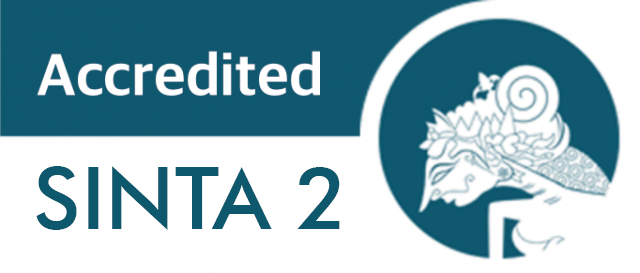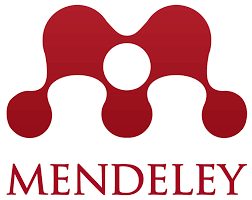A Five-Stage Model of Qur’anic Pedagogy Integration into Teacher Education Curriculum
DOI:
https://doi.org/10.15408/tjems.v2i1.1748Keywords:
qur’anic pedagogy, integrated knowledge, teacher education, curriculum review, pedagogi Quran, pengetahuan terpadu, pendidikan guru, ulasan kurikulumAbstract
Abstract
Advocacy for the infusion of Islamic resources into the education system permeates extant literature on Islamization of Knowledge. However, clear-cut strategies for redesigning teacher education curricula, at the systemic level, are yet to be evolved. This paper proposes a multi-stage model for developing an integrated teacher education curriculum that synthesizes the Qur’anic paradigm of pedagogy with conventional teaching approaches. Taking cognizance of the needs of educators of the future, the paper articulates the distinctive characteristics, tasks and actions associated with the stages of awareness generation among critical stakeholders. concept development based on the knowledge assets of the Qur’an, curriculum reform processes, implementation strategies and empirical methods for confirming the efficacy of the integrated package. In conclusion, the paper submits that a system-wide integrated pre-service education curriculum is capable of emerging and functioning effectively not only within the boundaries of Muslim education but also in non-Muslim contexts.
Abstrak
Advokasi untuk memasukkan sumber Islam ke dalam sistem pendidikan meresapi literatur yang ada tentang Islamisasi Pengetahuan. Namun, strategi yang jelas untuk mendesain ulang kurikulum pendidikan guru, pada tingkat sistemik, yang belum berevolusi. Makalah ini mengusulkan sebuah model multi-tahap untuk mengembangkan kurikulum pendidikan guru yang terintegrasi yang mensintesis paradigma Alquran pedagogi dengan pendekatan pengajaran konvensional. Mengambil tanggung jawab dari kebutuhan pendidik masa depan, artikel ini mengartikulasikan karakteristik khas, tugas dan tindakan yang terkait dengan tahapan generasi kesadaran di antara para pemangku kepentingan kritis. pengembangan konsep berdasarkan aset pengetahuan tentang Qur'an, proses reformasi kurikulum, strategi implementasi dan metode empiris untuk mengkonfirmasikan kemanjuran paket terpadu. Kesimpulannya, artikel ini menyampaikan bahwa dengan terpadunya kurikulum pendidikan pra-layanan seluruh sistem ini mampu berkembang dan berfungsi secara efektif tidak hanya dalam batas-batas pendidikan Islam, tetapi juga dalam konteks non-Muslim
How to Cite: Musa, I., A. (2015). A Five-Stage Model of Qur’anic Pedagogy Integration into Teacher Education Curriculum. TARBIYA: Journal Of Education In Muslim Society, 2(1), 12-22. doi:10.15408/tjems.v2i1. 1748.
Permalink/DOI: http://dx.doi.org/10.15408/tjems.v2i1.1748
References
Abdul-Haq, M. (2002). Educational philosophy of the Holy Quran. New Delhi: Adam Publishers and Distributors.
Ghazali. (1966). “The Book of Knowledge transl. of Kitâb Ihya’ cUlūmud-Din by N.A Faris (Lahore: S.M. Ashraf 1966). Retrieved fromhttp://www.ghazali.org/works/bk1-sec-1.htm on 2/5/14.
Ashraf, S. A. (1985). New horizons in Muslim education, Cambridge, Hodder and Stoughton and the Islamic Academy, P. 4.
Bidmos, M.A. (2010). Amanual for the teacher of Islamic studies. Lagos: University of Lagos Press.
Cornell, V.J. (2005). Teaching and Learning in the Qur’an. The Journal of Scriptural Reasoning, 5:3, Retrieved from http://etext.lb.virginia.edu/journals/ssrr/issues/volume5/number3ssr05_ 03_e02.html on 24/2/14.
Hassan, M. K. (2010). A return to the Qur’anic paradigm of development and integrated knowledge: The Ulu al-Albâb model. Intellectual Discourse, 18, (2), 183-210.
Khan, A. (2009). Education and scientific learning in Islam. Karachi: Peace Forum Network. Retrieved fromhttp://faithforum.wordpress.com/islam-2/knowledge-and-learning/islamic-education-system/ on 7/6/2.
Nasr, S.H. (1984). "The Islamic philosophers' views on education." Muslim Education Quarterly, 2 (4), 5–16.
Oke, G. G. and Musa, I. A. (2007). An assessment of training needs of Arabic school teachers in Lagos state: Implications for planning training and re-training programmes. International Journal of Educational Research, African Online Journal (AJOL) hosted, 3 (2), 249-258.
The Glorious Qur’an.











